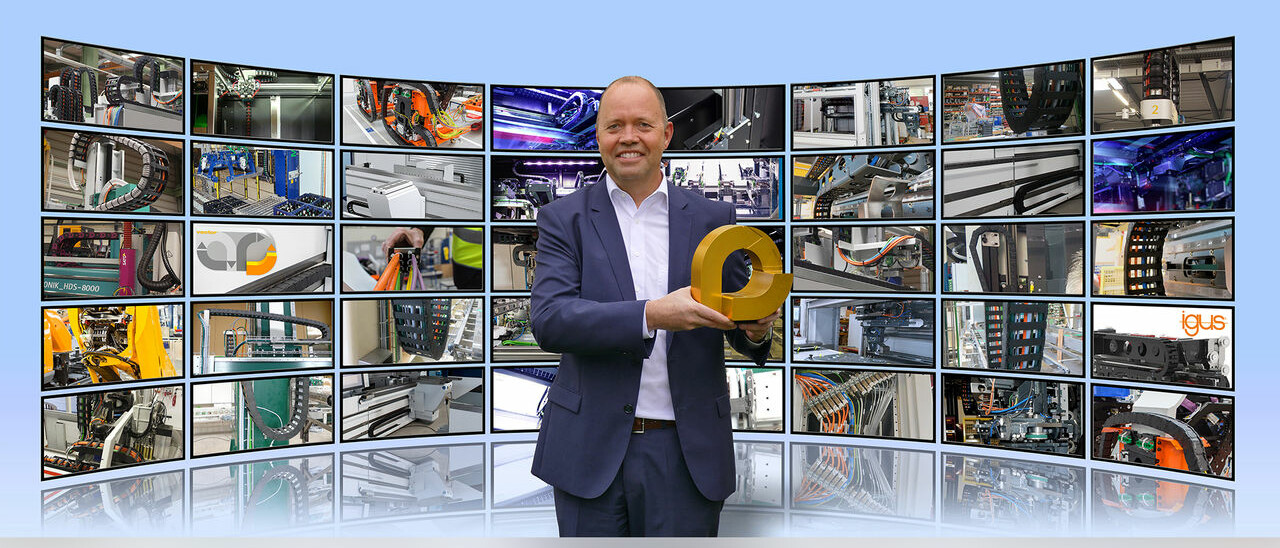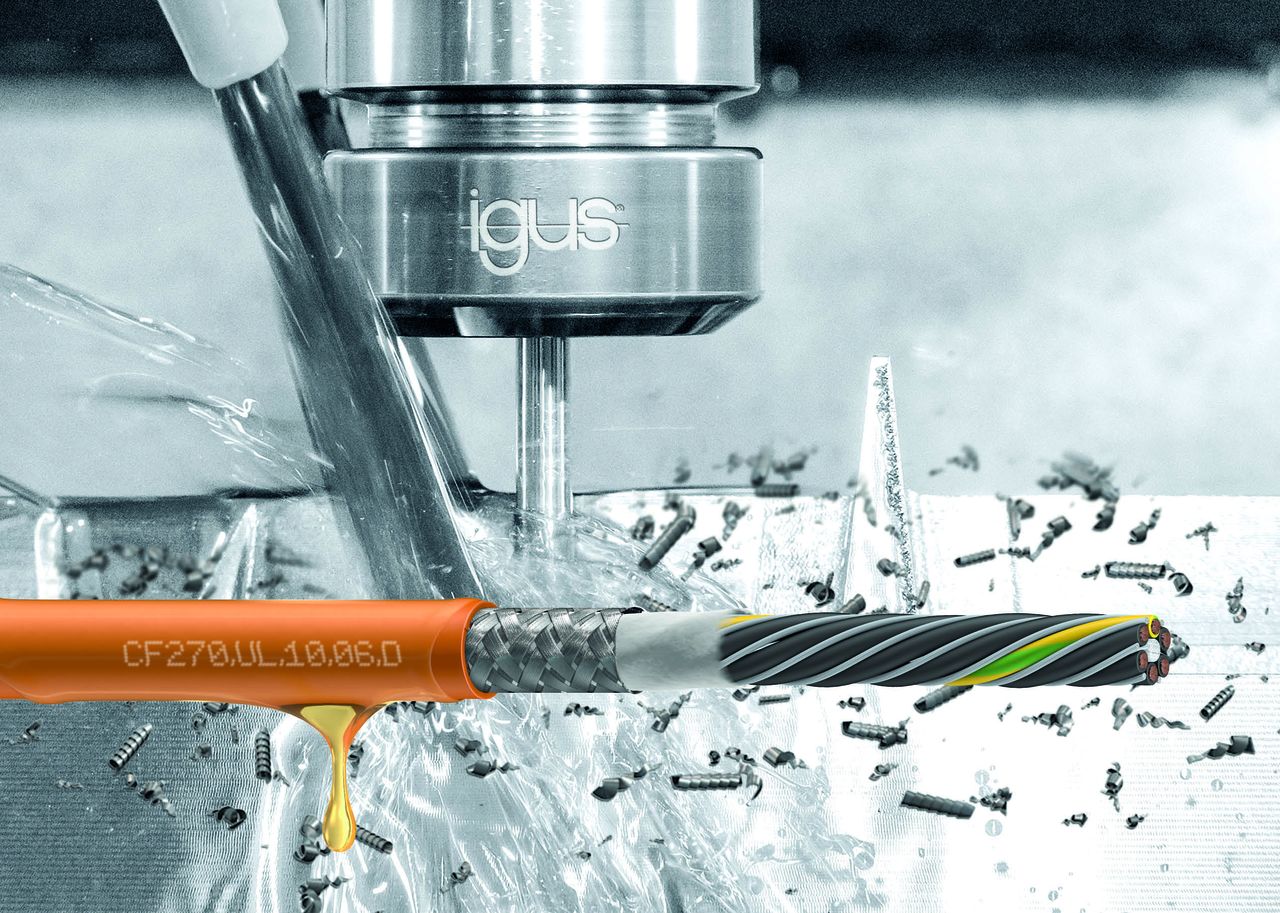The trend: Rethinking processes and relying on automation

Many customers seek personal contact at trade shows. Igus is also looking forward to the Motek 2021 presence trade fair, because the discussions at trade fairs always have a different kind of quality and spontaneity, says Michael Blaß, Managing Director of e-chain systems at Igus, in an interview with trade fair organizer P. E. Schall.
Mr. Blaß, how do you think assembly and handling technology, as the heart of traditional industrial production, will change in the coming years?
There is a boom going on in many sectors right now, so fast assembly and handling technology are becoming increasingly important. Reducing lead times, increasing capacities, launching products faster and using available space efficiently are the big goals here. At the same time, the new techniques must become faster and faster and at the same time more and more precise.
What technological developments need to be driven forward for this?
Flexible workplaces and a high proportion of automated systems will change assembly and handling technology in the future. This calls for easy-to-use, efficient and intelligent production systems with a fast ROI.
With the development of lightweight robotics, the world of production has taken on a new face. Which development particularly impresses you personally?
As we ourselves manufacture low-cost and lightweight plastic components for robots in our company, I was naturally impressed to see how strongly this area has grown, especially also in the last year of the pandemic. We have noticed that many companies are rethinking their processes and relying on automation, which does not have to be complicated or expensive, but can also be cost-effective and simple. For example, users can find a ready-made articulated robot arm with five axes and integrated control from as little as 5,000 euros.
In your view, to what extent has the pandemic situation changed industrial processes and everyday production? Will these be sustainable changes and outlast the crisis?
We have all learned from the crisis how important it is to be able to change processes flexibly. For example, we sent most of our employees to the home office in March 2020 and implemented over 250 preventive measures including a vaccination center to keep production running. Our production staff have been involved from the very beginning, which has enabled us to supply our customers worldwide without interruption. In our view, this flexible working and rapid switch to digital forms of communication, as practiced by our employees in the home office, will permanently change the world of work. In this way, we are already offering our employees the opportunity to continue working in a hybrid environment.
In your view, to what extent has the pandemic situation changed industrial processes and everyday production? Will these be sustainable changes and outlast the crisis?
First and foremost, the pandemic has probably changed the way we work. The possibilities of digital collaboration have existed for a long time, but they would never have gained such widespread acceptance at this speed. I am sure that these insights will persist beyond the crisis and create new opportunities in our everyday work. In addition, however, the crisis has also brought awareness of the value of local supply chains back into focus. Here, with the removal of restrictions, some sourcing will certainly take place overseas again. Nevertheless, I believe that we have become more aware of the risks and that at least a local second source for critical parts will remain strategically in focus.
Which measures or methods do you consider to be particularly effective in moving closer to climate-neutral production?
Every company should question itself and its processes and seek new solutions to the biggest energy drivers. The methods and measures must be considered individually, as each company has different levers for reducing emissions. We see a major opportunity in the recovery of energy from our own production processes. We also use these, for example, in our extrusion operations. At the same time, it is also important to us that the materials processed in production are fed more strongly into a circular economy. There are currently new promising processes in this area. For example, we invested in the start-up Mura Technology. Its HydroPRS technology uses heat, water and pressure to turn plastic back into usable petroleum. The first commercially operated plant is currently being built in England.
Automation intelligence for production and assembly – You know Motek/Bondexpo as the outstanding, traditional B-to-B marketplace for the industrial automation industry. How important do you consider a face-to-face event in fall 2021 for exhibitors and trade visitors?
I think an in-person event would give us all a piece of everyday life back. We notice ourselves how many customers are looking for personal contact and also more and more – thanks to low incidences – a kind of normality is returning. While video chats and virtual booths are a good solution for the current times and will certainly be used more often than before after the pandemic, the conversations at trade shows always have a different kind of quality and spontaneity – and that’s what we’re looking forward to.
